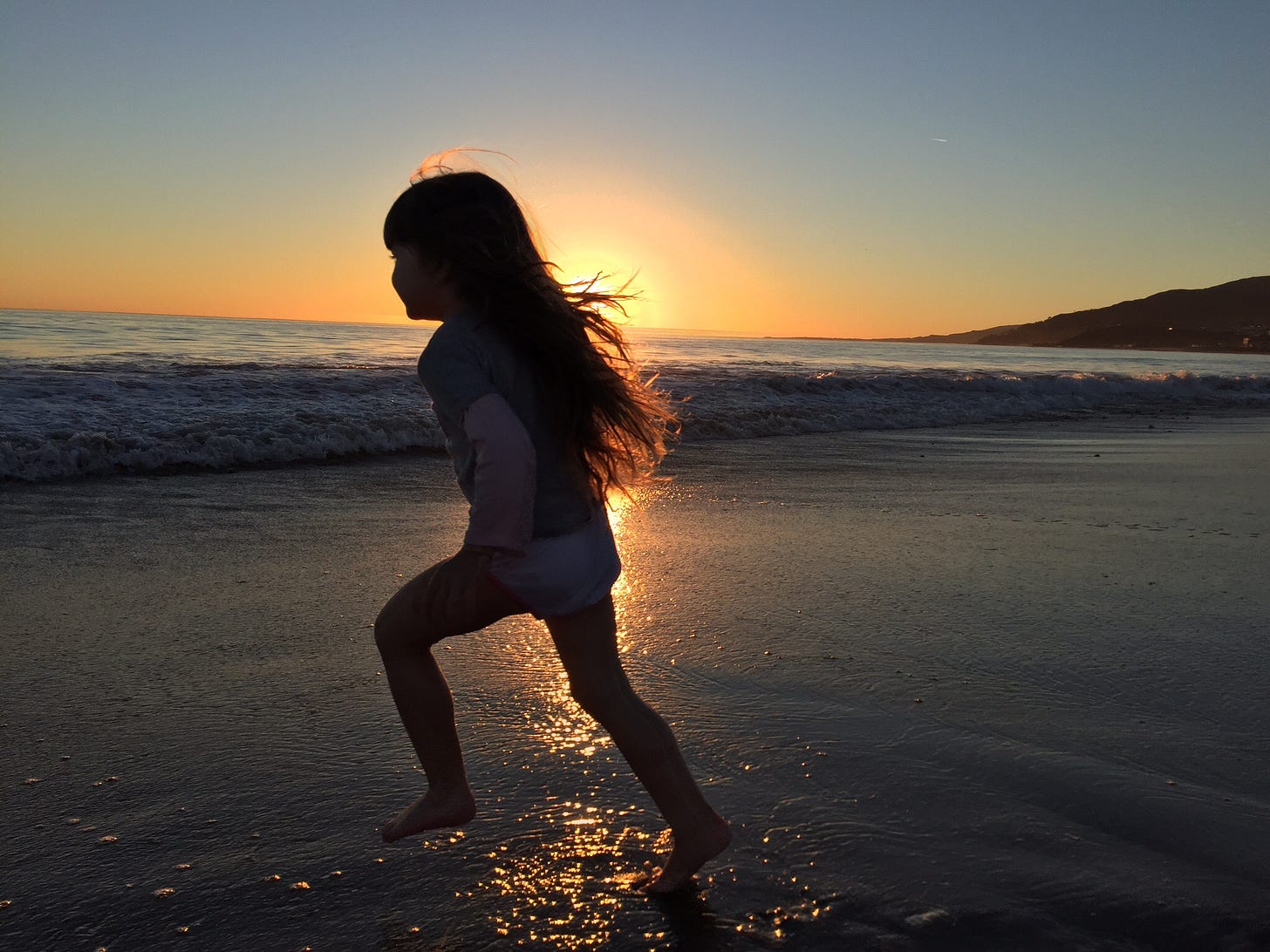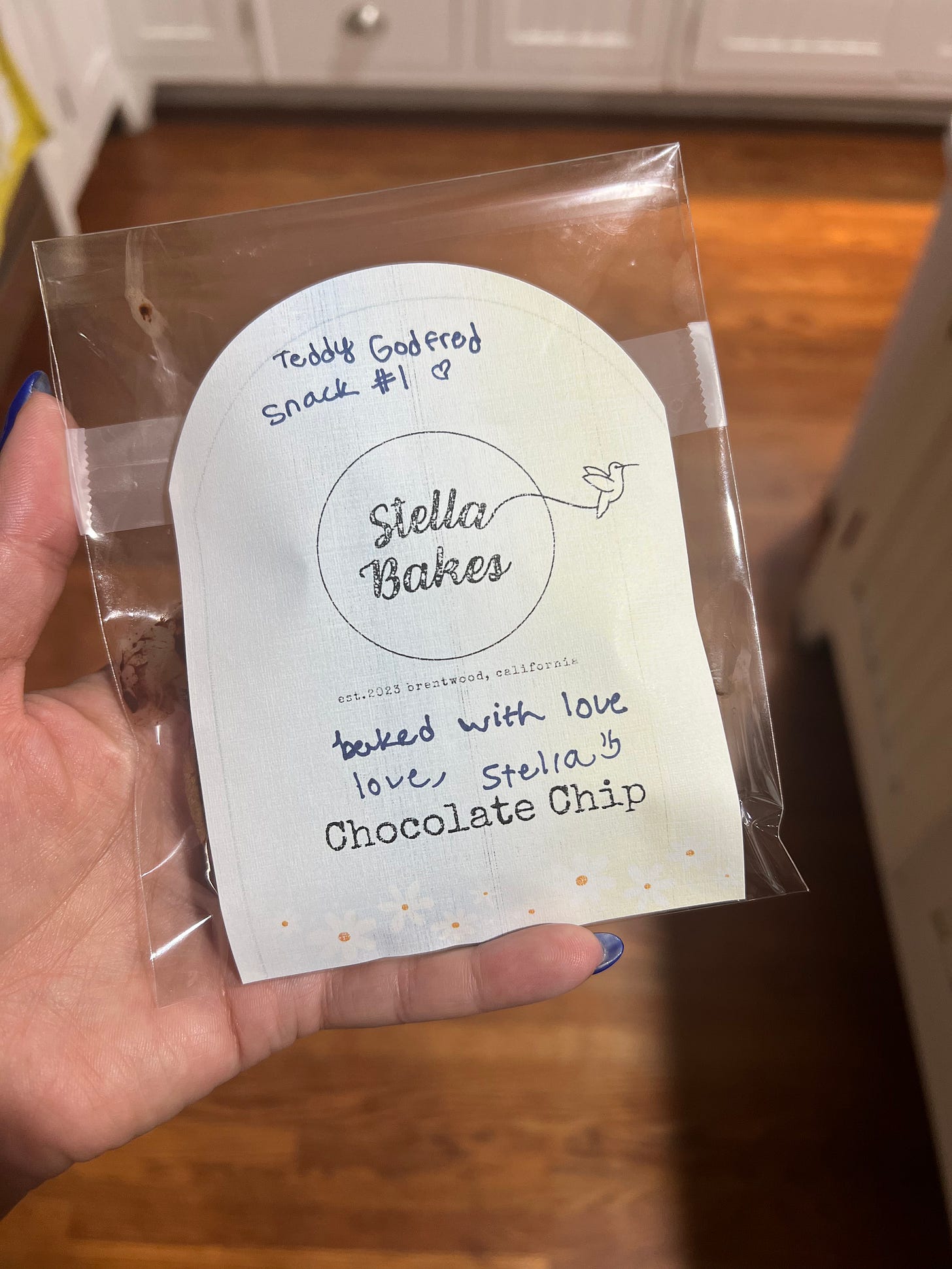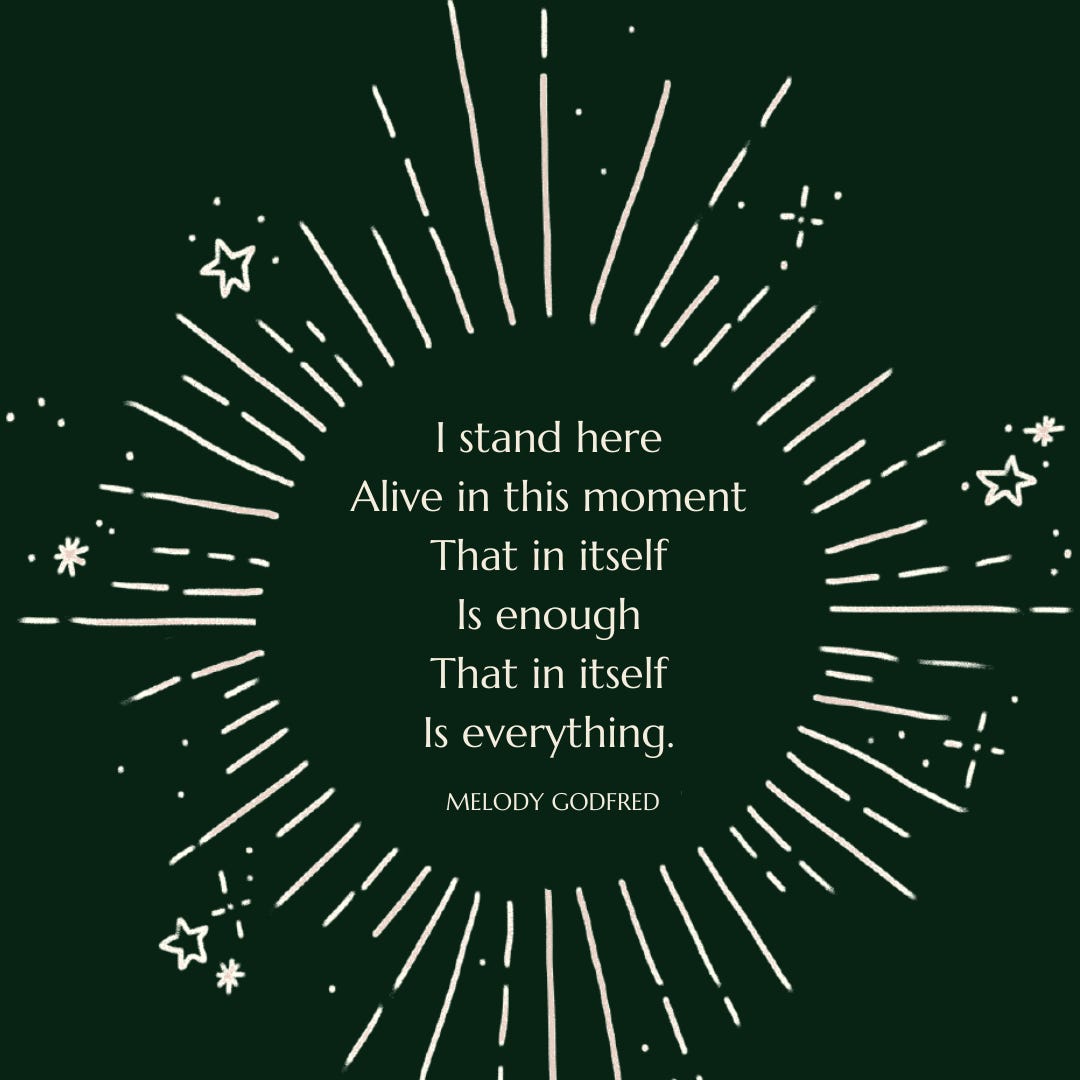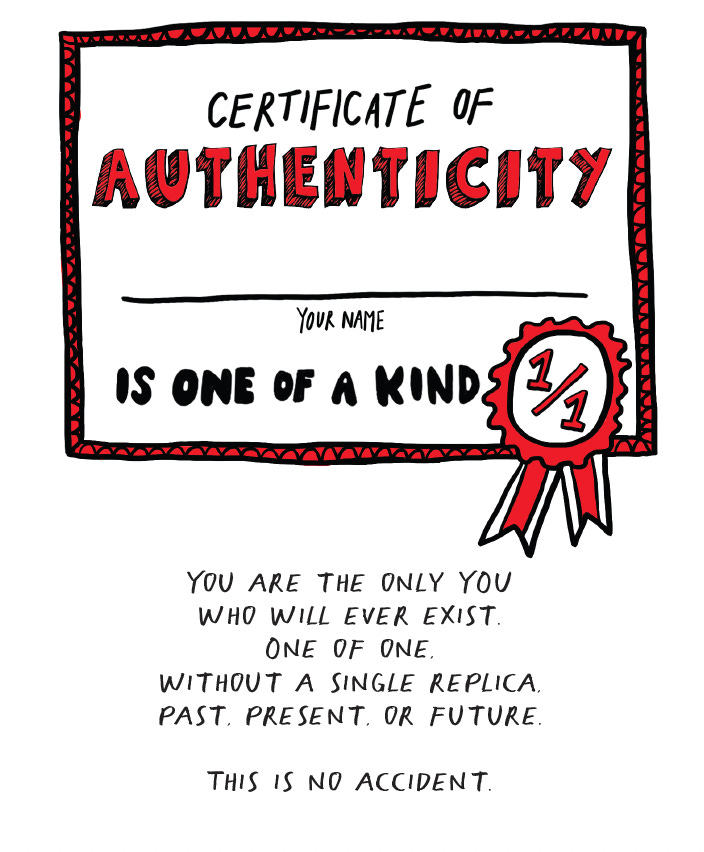Stella running at the beach in 2016.
If I could pick one limiting belief or story that has cycled in my mind the longest, it would be that I’ve never met my potential. The phrase itself tells you everything that’s wrong here. Thinking about meeting my potential conjures up an image of me running down a hallway, chasing after a girl I know I’ll never catch. She is the Ivy league acceptance that never came. The LSAT score that slipped away. The million dollar idea that should have become a multi-million dollar business. The NYTimes bestseller that would have made the list if I had just been smart enough to... The version of me I always knew I was capable of, but never became. I’ve never seen her face, but she probably even got the nose job I (thankfully) was always too scared of getting. The fully realized version of me is perfect — inside and out.
Perceiving yourself as unrealized potential is a funny form of false confidence. On one hand, you’re bursting with your own possibility: to know just how great you’re capable of being is a deeply powerful thing. And it is most powerful perhaps, when you’re using that confidence not as a force behind you, propelling you forward, but as one facing you, tearing you up, and blasting you down. “You may be capable of being great, but you messed it up.” The winds of my shame, and doubt, and self-sabotage are equivalent to a Category 5 hurricane — but far more common.
The Shift: Poetry for a New Perspective, 24
Knowing just how capable I am has never been the problem. Recognizing just how much I have already achieved is.
I’m flooded with memories of my inner monologue as I write this. I distinctly remember being in junior high, not studying at all for a science test, and getting an A-. Instead of being elated, I beat myself down. “If you get an A- without studying, imagine what would have happened if you studied?” The same was true for every single test I ever took, even when I studied. Even when I got an A+ in first year constitutional law in law school, I didn’t allow myself the win. “The professor must have made a mistake,” I told myself. Even when I reached my highest potential, I didn’t allow myself to celebrate. My fully realized self too much of a myth for me to recognize or own.
My failure to finish things I start is another way in which I let the unrealized potential story take hold over me. People who realize their fullest potential finish things, right? They don’t let their parents buy the expensive music recording software and then never learn to properly use it. People who are smart and capable and fully realized don’t have half written diaries, or half finished art projects.
People who meet their potential finish what they started.
One of these unfinished projects resurfaced this week in my home, 30 years later. When I was between the ages of 7 and 13, I became deeply invested in beeding (hello 80s and 90s children). By virtue of my inability to let anything go (read more about that here) I still have a lot of the things that were precious to me as a child, including some of my beads and beading projects — you guessed it, many of them unfinished. One of these lingering projects is a wire coil bracelet that I started when I was 10 or 11. I remember painstakingly feeding the smallest of small yellow seed beads onto the coil, and then eventually giving up, halfway through. Although the bracelet got tucked away along with my beads in a closet, my self-judgment for never finishing it remained top of mind. Until this week.
I gave my girls my beads at some point in the last few years, most probably as a pandemic era distraction for their boredom. They weren’t quite as enthusiastic about my beads at that time, probably because the tiny beads were just a bit too small for their tiny hands. This week though, thanks to some organization on my part of the kids’ activity closet, the beads came back up for air. And this time, Stella found my half-finished coil bracelet, and she finished it.
Stella finished the project I started — thirty years later. Stella met my potential for me.
I wish I could force you to pause here. To Take in the magnitude and meaning of what I just described. I can’t force you, but please, take a moment: feel the magnitude. Take in the meaning. She finished what I started. She reached my potential. Finally. Not only that, she made it better. Whereas my bracelet only had the single style of mini yellow beads, Stella created a beautiful pattern of beads in whites and blues and golds that took the bracelet to a new level. She took it where it needed to go, which was far beyond where my imagination alone could have taken me.
My whole perspective on potential has experienced a cataclysmic shift, as has my relationship with time. Maybe my fullest potential wasn’t mine to realize alone. Maybe it is only in moments of community that we get to achieve our fullest expression.
I needed Stella’s help to finish what I started. To reach my project’s potential, and mine. And as this story illustrates, it can take years, even decades, to see your potential all the way through. And I realize now, that’s okay. Because one thing I’ve learned firsthand is that authenticity has no expiration date. It is never too late to come home to yourself. I published my first poem at the age of 11, and didn’t publish my next one until I was well into my thirties. I can promise you this — I didn’t see my fulfillment as a poet coming. I didn’t even dare dream of it.
I shared my aha moment with Stella and the bracelet with my husband Aaron and he had coincidentally experienced his own moment of fruition with Stella this week, too. Stella is the baker in our family, and this week she created her own logo and baked the absolute most delicious chocolate chip cookies from scratch. Her company name? Stella Bakes. When Aaron got his first job as a sports marketing consultant out of grad school, his mentor asked him what his dream job would be and he responded, “to open Aaron’s Cakes, a pancake house by the beach.”
20 years later, Aaron’s Cakes has become Stella Bakes. Even a dream can transform from potential deferred into potential realized — as long as we are patient, and collaborative, and see the bigger picture of who we are and why we are here.
The Shift: Poetry for a New Perspective, 25
So I’ve stopped chasing — and funny enough, the girl with flowing hair running ahead of me in the hallway has stopped running away. And me, no longer racing, and panting, and struggling to catch up, can finally take the breath I’ve been holding an entire lifetime.
As long as I am here, alive and well, I am exactly where I need to be. Because she is me. And she is you.
The Confessional:
The confessional is where you can take what you read here and put its learnings into practice.
Recode your memories
In researching how memories work, I’ve learned that “memory is more reconstructive than it is reproductive.” That means that memory is not absolute — no matter how much it may feel like it is. We can revisit our memories, and recode them. Through what is known as memory reconsolidation, you can bring forward long-term memories into your short-term memory and simply put, change them by creating new neural pathways.
If you like me have struggled with never feeling like you’ve reached your full potential, like you’ve never been enough, try to recall specific memories and then shift your emotional response to them, perhaps during a meditation. For me, this would mean filling myself with pride when I got that A-, instead of dread. This is very much aligned with Lacy Phillips work at To Be Magnetic, so I highly recommend checking her out if you want to learn more.
Listen to this playlist
Music is an exceptional way to tap into your memories. I’ve put together a playlist of some of the songs that carried me during my teens and twenties while I was suffering some of my worst unfulfilled potential moments (truthfully, it should be 100% Fiona Apple but I tried to mix it up for you). I highly recommend making your own and letting the music take you right back to the moments you need to recode the most.
Know your narrative
In my book The ABCs of Self Love, K is for Know Your Narrative. In this chapter I share about how knowing your story is how you discover your unique purpose on this planet because after all, we are all one of one (and for a reason). The journal exercise associated with this chapter is to write a page for each year of your life. You can adapt that practice and focus specifically on moments you are proud of — where instead of unfulfilled potential or unfinished projects, you see and document yourself in all your wholly realized glory.
If this piece resonated, please like it, comment, share with a friend or become a paid subscriber.












I really love this Melody - it's beautifully expressed. I often think of the 'monarch butterfly' metaphor who's cyclical migration of 2500 miles sometimes takes up to 5 generations to complete. I wonder if we could cultivate a mindset so sustainable that we purposefully create things only future generations would be able to complete...it takes a different way of seeing our purpose in life. Thank you for this!